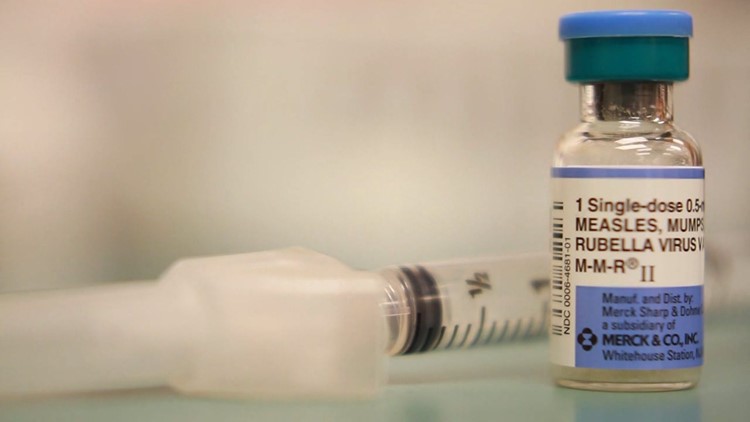LANCASTER COUNTY, Pa. -- Some people are concerned after the number of mumps cases continues to rise at Temple University and other schools and colleges in the area.
The mumps outbreak at Temple and more than 20 suspected cases at other schools is leaving some people to wonder if it could spread to South Central Pennsylvania.
The number of cases at Temple hit triple digits today - more than 100 cases now reported at the university alone.
"That sounds a little scary. I hope that doesn't happen here," said Josh Cropanzano, a junior at Franklin and Marshal College.
The disease hits close to home for one student at F&M in Lancaster.
"My little cousin actually got the mumps," said Nate Cappuccino, a senior. "It was really weird. We were in New York, and she just contracted the mumps. Honestly, it looks kind of gross. Her face got really big, her cheeks and stuff."
That swelling in the salivary glands lasts at least two days according information sent to FOX43 by the Pennsylvania Department Of Health.
It reads, "Mumps is spread by direct contact with or by inhaling droplets that contain the virus. Although mumps virus has been found in saliva from seven days before onset of salivary gland swelling to nine days afterwards, a person is most infectious between two days before and five days after swelling. People with mumps virus infection may not have any symptoms, but may still be able to spread the disease to others."
Symptoms begin anywhere between 16 and 18 days after infection, and that includes fever, headache, muscle aches, tiredness, and loss of appetite.
There is no cure for mumps, and complications can be serious.
Complications include:
- Inflammation of the testicles (orchitis) in males who have reached puberty but rarely does this lead to fertility problems;
- Inflammation of the brain (encephalitis);
- Inflammation of the tissue covering the brain and spinal cord (meningitis);
- Inflammation of the ovaries (oophoritis) and/or breasts (mastitis) in females who have reached puberty;
- Deafness
"It's more common in areas like colleges and schools where you have a group of people, students together and they share items. They share drinks. They touch surfaces, and they can get it from touching surfaces or droplets from sneezing and coughing," explained Adam Marden, operations manager at Susquehanna Valley EMS.
Mumps can be spread among people who live close together, through kissing, the sharing of cups and fluids, or competing in sports, according to the Centers for Disease Control.
As for whether or not crews at Susquehanna Valley EMS have handled a case, Marden the operations manager can't exactly say.
"We may have run into cases because some of the symptoms that the mumps show, are like other cases, like in the flu or just being sick, and we wouldn't now that the patient has the mumps," he added.
He says it's not strange to have so many suspected cases in the Commonwealth.
"Diseases, ailments, they cycle through and come back, just like the measles, and it kind of makes cycles, you know, just like bell bottom pants, you see it coming back every so often," said Marden.
If for some chance mumps made its way to F&M's campus or anywhere else in Lancaster County, students we spoke with feel pretty confident, it wouldn't get far.
"If anyone got mumps, it would get reported right away, and they'd be excommunicated from everyone else for the time being," added Cappuccino.
A spokesman for the Pennsylvania Department Of Health tells us that immunity to the mumps can fade in young adults - meaning even if kids are vaccinated, they can still be vulnerable to the disease later on.
He says anyone who believes they might have the mumps should self-isolate.
If you believe you're around someone with the mumps, make sure you're washing your hands with soap and water and do not share food, drink, cellphones, or computers.
According to information sent to FOX43 by the Pa. Department of Health, "Immunization against mumps is the best way to prevent becoming infected. Two doses of mumps vaccine, given at 12-15 months and at 4-6 years of age, is recommended. In the United States, two types of vaccines for mumps are available: MMR – combination of vaccines for measles, mumps, and rubella (German
measles) and MMRV – combination of vaccines for measles, mumps, rubella and varicella (chickenpox). In accordance with Pennsylvania Department of Health regulations, any attendee or staff member of a school or daycare who has mumps must be excluded from school or daycare for nine days from the onset of symptoms or until swelling has resolved."



